Slow down – potholes ahead
Thud! It happened again – you hit another pothole. That’s the third one this morning and you aren’t even to work yet. Potholes aren’t just a roadway nuisance, they can do real damage to your vehicle and your wallet.
US drivers pay approximately $3 billion a year for vehicle damage due to potholes. In a 2016 study by AAA, it found that $15 billion was spent by US drivers on car repairs to fix pothole damage the previous five years.
Read on to learn the parts of your car most susceptible to damage from potholes. To learn more about how potholes form and how you can avoid them, check out this article.
Tires
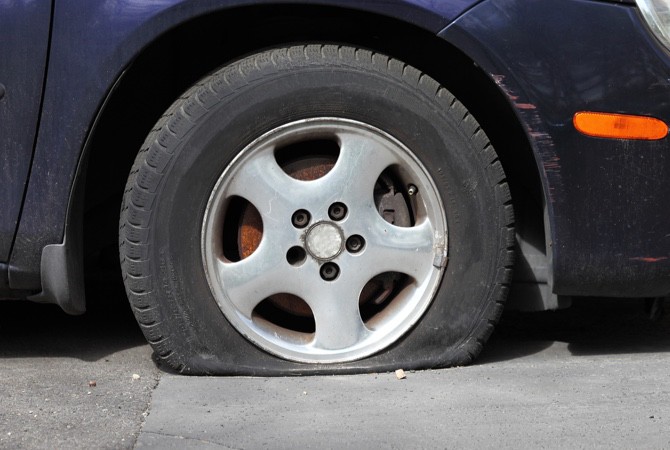
Your tires are the first thing to hit a pothole, so it’s no surprise they could be punctured or go flat after taking on a pothole. Even if your tire doesn’t immediately show signs of being flat, the impact of hitting a pothole can weaken or stretch a tire’s belts and cords and lead to a blowout or flat tire further down the road.
If you have hit a particularly large pothole, take time to inspect your tires for damage. Run your hand along the sidewall, feeling for bulges. If you find any evidence of bulging sidewalls, don’t wait on getting your tire replaced, as you could experience a potentially devastating blowout.
Wheel rims
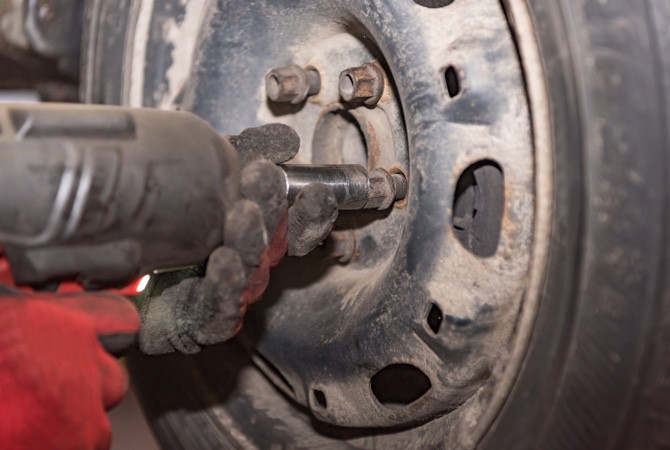
Most modern vehicles have aluminum-based rims which can be at risk for pothole damage. A bent wheel rim is often a result of hitting a deep pothole at a high rate of speed.
There are a few signs you may notice if you are driving on a bent rim. You may experience vibration in your steering wheel or your car may not handle like it normally does. While these are also symptoms of other issues, it can point to a bent rim. The sure-fire way to know is to do a physical inspection of the rim. A normal rim appears flush with the tire but a damaged rim will appear visibly bent away from the tire. If you notice any damage, your mechanic will be able to help you get back on track.
Suspension system
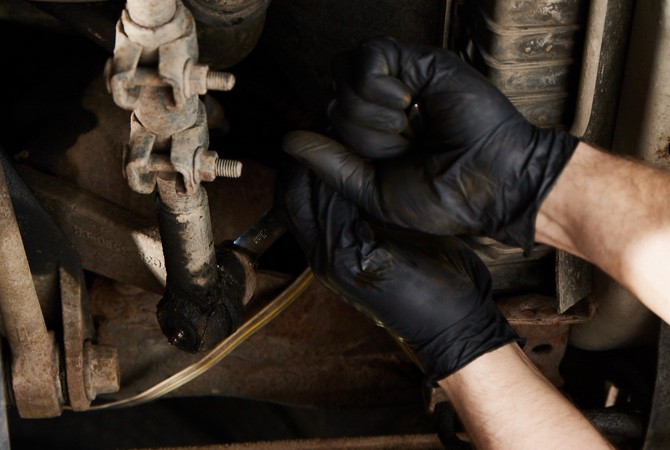
Repeatedly running over potholes can have a detrimental effect on your vehicle’s suspension system. This can be seen with premature wear and tear on shocks and struts.
You may notice that your vehicle doesn’t ride as well as it used to. It may not handle bumps very well and may excessively bounce. You’ll want to have any suspension issues addressed by your mechanic. The longer you put it off, you run the risk for additional damage the next time you hit a pothole.
Alignment
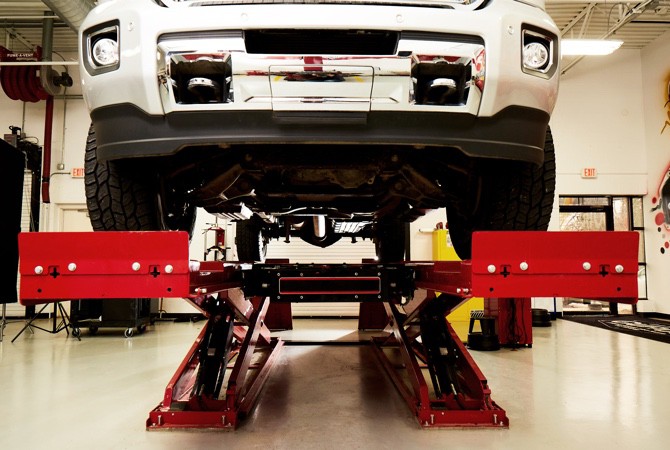
Wear and tear from potholes can also take a toll on your car’s alignment. If your vehicle comes out of alignment, your vehicle won’t drive straight, pulling to the left or right. Besides being harder to handle, you may experience uneven tire wear. Your mechanic has the tools and know-how to get your vehicle back into alignment.
Undercarriage
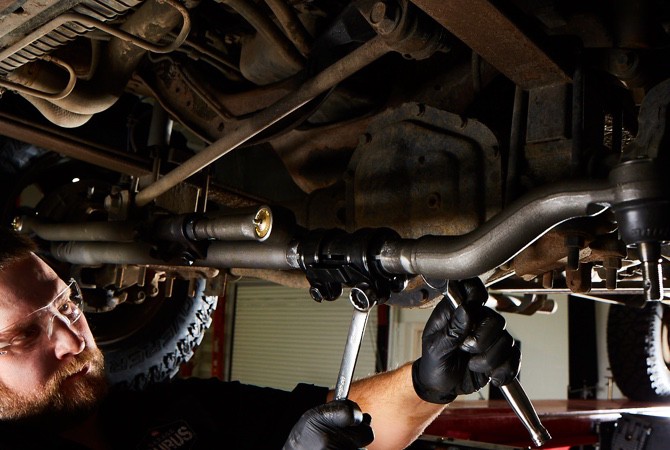
When you drive over a pothole, the undercarriage of your vehicle is exposed and at risk for damage. If the pothole is large enough, it is entirely possible that your vehicle could bottom out. Hoses and lines can be punctured which can result in fluid leakage. Be on the lookout for fluids leaking under your vehicle.
The same goes for your exhaust system. Located underneath your vehicle, the exhaust system can also sustain damage from potholes scraping the undercarriage. If your exhaust system begins to sound different, get it checked out by your mechanic.
Final word
Unfortunately, potholes are a fact of life for most of us. If you think your vehicle may have suffered damage after hitting a pothole, take your vehicle to your trusted mechanic for a thorough inspection.
Learn more about premium steering and suspension parts, find your car part, or find where to buy your auto part today.
The content contained in this article is for informational purposes only and should not be used in lieu of seeking professional advice from a certified technician or mechanic. We encourage you to consult with a certified technician or mechanic if you have specific questions or concerns relating to any of the topics covered herein. Under no circumstances will we be liable for any loss or damage caused by your reliance on any content.
Other Parts For Your Vehicle
MOOG® offers a wide variety of auto parts for all your vehicle needs.
Check them out today!